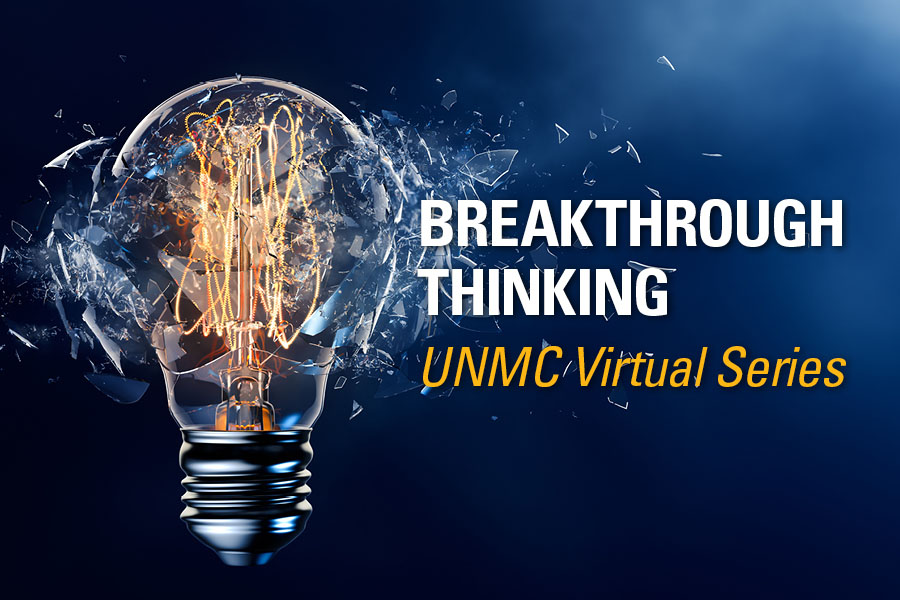The triple threat in academic medicine long has been the physician who provides high-quality clinical care, educates students and performs high-caliber research.
Arlen Meyers, MD, believes times have changed.
“To me, clinical technologist entrepreneurs are the new triple threat,” he said.
Dr. Meyers shared his thoughts on health innovation and entrepreneurship during Monday’s Breakthrough Thinking series, which is designed to challenge and inspire UNMC faculty, staff and students to out-of-the-box thinking.
Dr. Meyers is emeritus professor of otolaryngology, dentistry and engineering at the University of Colorado School of Medicine and the Colorado School of Public Health and cofounding president and CEO of the Society of Physician Entrepreneurs. His primary research centers around biomedical and health innovation and entrepreneurship and life science technology commercialization.
Academic medical centers have a choice, Dr. Meyers said, to persist, pivot or punt on doing things as they’ve always done. He challenged the audience to disruptive business behavior that introduces non-conventional business models to remake businesses, or, in this case, academic health science centers.
“Physician entrepreneurship and innovation will accelerate the achievement of quintuple aims,” he said. “…The reality is that the business of innovation, in many instances, is about creating shareholder value if you’re a company. There’s a lot of argument that ‘we’re not in business of creating shareholder value; we’re in the business of making sure patients get better.’ Actually, we’re both. Whether you like it or not, sick care is a business.”
Watch the Breakthrough Thinking presentation with Arlen Meyers, MD, online.
Dr. Meyers said it’s time to revisit the medical school business model and make substantive, disruptive changes. “We can’t do that without informing, educating and motivating future generations to do it,” he said.
So, will adding entrepreneurship into the curriculum make a difference? Time will tell, he said, noting such conversations are similar to creating a start-up within a medical institution. Individuals, he said, must balance accreditation with innovation; test new ideas and learn from failure; use design thinking to do needs assessments and create a curriculum map; engage students and faculty; and create a viable, automatic sustainable time sensitive business model.
“It’s exciting to talk about these concepts of professional entrepreneurship,” UNMC Chancellor Jeffrey P. Gold, MD, said, in closing the hourlong session.
“We work very hard to think out-of-the-box and have a progressive and entrepreneurial approach,” Dr. Gold said. “At the same time, we value the fundamental delivery of quality, safe patient experiences and access to health care and health caring, both of which are important to us.”
